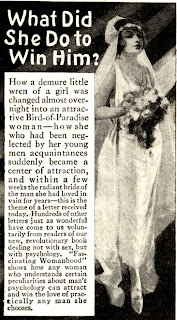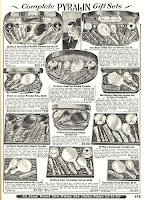Beyond Sing the Woods, and its sequel, The Wind From the Mountains, by Trygve Gulbranssen, were published in the US in the 1930's. They tell the story of the Björndal family, whose manor dominates a remote mountain province.
By the time of this excerpt, Chapter XIII from The Wind from the Mountains, we're into the 2nd book and about 50 years into the family's saga. Adelaide Barre is still a relative newlywed, to "Young" Dag Björndal. Here is a Björndal Christmas:
--
There was a grand Christmas at Björndal after this good year. Major Barre and Aunt Eleanor came and there followed feasting and dancing and voluble speeches at the table and catches and boisterous songs.
Some of the guests found it hard to stomach sitting at the table with all the manor-people on Christmas Eve, and be solemn with Bible and church-candles in the middle of the table, and listen to Dag reading the Christmas text. It was still worse when the old man broke up and went to bed quite early, giving it out as a decree that every one would be called in the small hours for the drive to the early Christmas service. What sort of treatment was that for people of position?
They were not at all consoled by being awakened with a dram of spirits and a snack: they dreaded the drive in the night cold and growled angrily. But the singing of the sleigh bells and the glow of the torches and the solemnity in church worked upon them as on others; and what was naive and genuine in them responded through the fog of protest which they had believed to be their attitude to life.
Unlike many priests of the time, Pastor Ramer did not mount the pulpit in order to philosophize and excuse for God being possibly--and unfortunately--in existence. He was there to hold a service and he so believed in God that the whole church lived.
Marvelously the sleigh-bells rang out and marvelously the torches flared across the snowy spaces and between the tress of the forest ridge, when they drove home. Mighty words, suited not only to good fortune and great days, but of value also in days of adversity and death, rang in their ears through the darkness with the song of the bells and flamed in the torchlights, all the way from church to Björndal's tun.
Because of the many guests, they had eaten in the new building hitherto, but when they came home from church, the Christmas table was spread in the inner room of the old house, as in all other years, with abundance of meat and fish and other foods, as was the custom from olden times.
The guests felt something of what Adelaide had once felt at this table: reverence for the living spirit of former times and ancient power, and the genuineness and security pervading everything, from the wall-timbers and the beams in the roof to the handsomely carved chairs and the table-silver.
At the beginning all, as one man, looked at Old Dag. They knew not how to take him: and Adelaide had to purse her mouth not to smile. All these worldly, confident people! After yesterday and the beginning of today, Old Dag's power was over them, too, and they sat respectfully still. Today he tarried a long while before touching his glass. Perhaps his ears had caught a little grumbling the evening before, and again this morning--he had keen hearing--and it may be he wanted to let the solemn mood sink well in now.
At last he raised his glass and said the words it was his custom to say at this table. He thanked them all for coming so far and for respecting the traditions of the gaard, and told them that what was on the table would perhaps put them in mind of the Lord's abundant gifts; then he smiled gravely, drank skaal--and set his glass down empty.
The meal took its course. Old Dag put not further restraint upon them, brandy and strong ale made them merry, and laughter and liveliness and mirth filled the room as they had filled it countless times before.
Adelaide had marked what Old Dag said of remembering the Lord's gifts in the abundance of the Christmas table. All had its ancient purpose here.






























